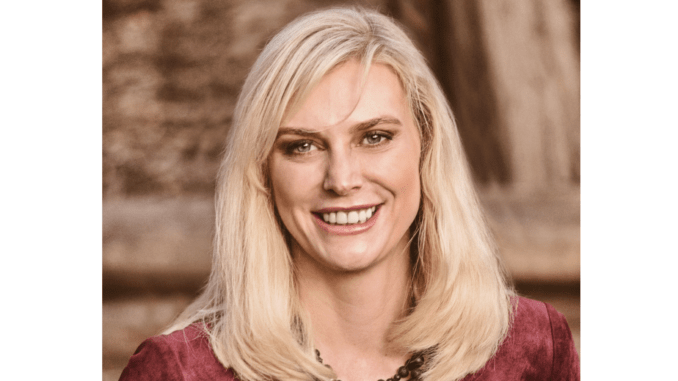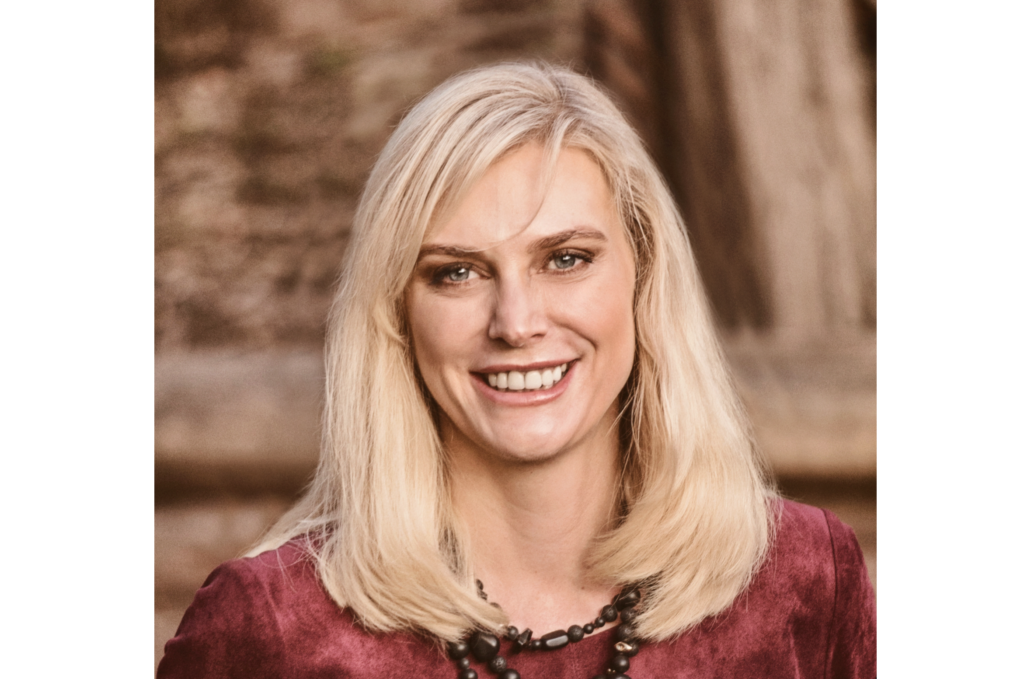
Artificial Lawyer is today launching a new series called Women in Law – Female Founders, where well-known legal entrepreneur, Dana Denis-Smith, the creator of Obelisk, interviews inspiring women working in the legal sector around the world.
The first – and just ahead of International Women’s Day – is an interview with Catherine Krow, CEO of legal tech startup, Digitory Legal. Catherine shares her experiences on addressing key business issues in the legal world, what it’s been like to create her own startup, and points out a couple of the challenges she’s noticed as a female founder.
—
Hi Catherine, first of all, please tell us what your business is all about?
A few years ago, I realised that legal departments were undergoing pressure to reduce spending, forecast accurately, and increase outside counsel accountability. In a buyers’ market, law firms needed to solve cost management problems in ways that promoted trust and collaboration.
The starting point for this legal tech venture was Digitory’s litigation budgeting and AI-enabled cost analytics platform. It used data to answer the question ‘What should this case cost and why?’ and then helped customers manage that number.
How would you describe your company’s growth in just three key figures?
- User base growth over past 12 months: +150%
- Increase in billing data volume processed over past 6 months: a factor of 45
- Time from release of enterprise platform to first AmLaw top 50 law firm client: less than a week.
What are your insights into the startup world as a female founder?
Diversity is not a metric for funding and there are not enough women in VCs.
Female founders are being held to Series A funding metrics in what are actually Seed rounds.
It’s not because women are too protective of their equity as is often said; it’s just that they have to fight harder for the same valuation as men get.
More broadly, what are your thoughts on the state of the legal industry as a whole?
The global financial crisis of 2009 really put legal department spending under a microscope for the first time. As a result, clients are applying an unprecedented level of business discipline to the legal industry. Legal departments face the same pressure to live within ever-shrinking budgets that other business units have felt for decades.
Corporations also have built up legal procurement and legal operations departments – departments that barely existed before 2014 – to help them apply traditional lean sigma business principles to the legal market. Various industry trends appeared, including disaggregation of work and the rise of alternative legal service providers.
How do you address some of these challenges?
Our technology improves the law firm-client relationship by creating transparency and setting clear expectations. When clients complain about their firm, their dissatisfaction often boils down to a lack of communication around costs.
Digitory Legal changes this dynamic by providing an unprecedented level of clarity and communication around scope, staffing, costs, and the financial implications of changing circumstances. When the expectations are clear all the way through the matter, there are fewer unpleasant surprises.
You have spent time in the UK, including at the MDR LAB incubator last year, from what you have seen what is the biggest risk for the UK legal sector, given the current climate?
To compete with the Big Four, UK law firms need to take a more consulting-like approach to managing and pricing work, including:
- A deep understanding of costs, down to a task level.
- A focus on resource management.
- Clear communication, both internally and externally, around expectations.
Describe your role and responsibilities in the business now?
Instead of practising law, I now help law firms and corporate legal departments solve business problems. As our CEO, I am responsible for creating the platform and executing on our objectives. I also frequently present, write and consult on issues of legal cost management, fee structures, and the use of artificial intelligence in law.
How has your previous experience aided your current job?
As a former law firm partner, I truly understand how hard it can be to manage costs and communicate around expectations while deep in the trenches of practice. That perspective has helped us empower business professionals to assist practising lawyers with cost management, which allows those lawyers to focus more attention on delivering great outcomes.

What has been the most challenging and the most rewarding aspect of your job?
The greatest challenge was finding the right people to implement my ideas. Although I had a clear vision of what I wanted to build based on my industry experience, I am not a coder. When I found the amazing development team we have today, that piece of the puzzle fell into place.
The most rewarding part of this process has been earning the respect of many of the greatest thought leaders in legal practice management. I am also very proud of the example I have set for my daughters by leaving the safe path of Big Law to found a technology startup (which is probably the only thing harder than what I was doing before).
What’s in store in 2019?
I am excited to pursue additional strategic partnerships in 2019, with the goal of increasing interoperability of legal technology solutions. We want to make legal technology as easy to use as possible, and the right partnerships pave the way to greater adoption.
Last question, what do you prefer, coffee or tea, and how do you like to relax?
COFFEE!!! I typically choose exploring new cities over beach or mountain vacations. But my favourite way to relax is also my greatest guilty pleasure: binge watching reruns of Buffy the Vampire Slayer.
Thank you for sharing your story and your thoughts.
About: Catherine Krow is the Founder of Digitory Legal, which is recognised in the Artificial Lawyer’s AL 100. She was named a 2018 Top Woman Entrepreneur In Cloud Innovation, and also has been selected in the 2019 American Bar Association’s LTRC Women of Legal Tech. Before founding Digitory Legal, she practised law at top tier firms for 17 years. Catherine also is a frequent speaker and recognised thought-leader on legal technology, spend management, and the use of artificial intelligence and data in law.
And,

In 2014 she founded a unique history project – first100years – charting the journey of women in law through a video social history, @first100years.